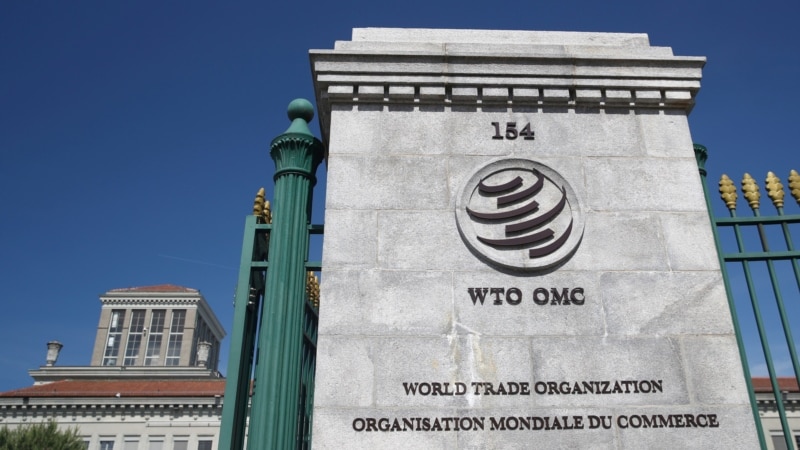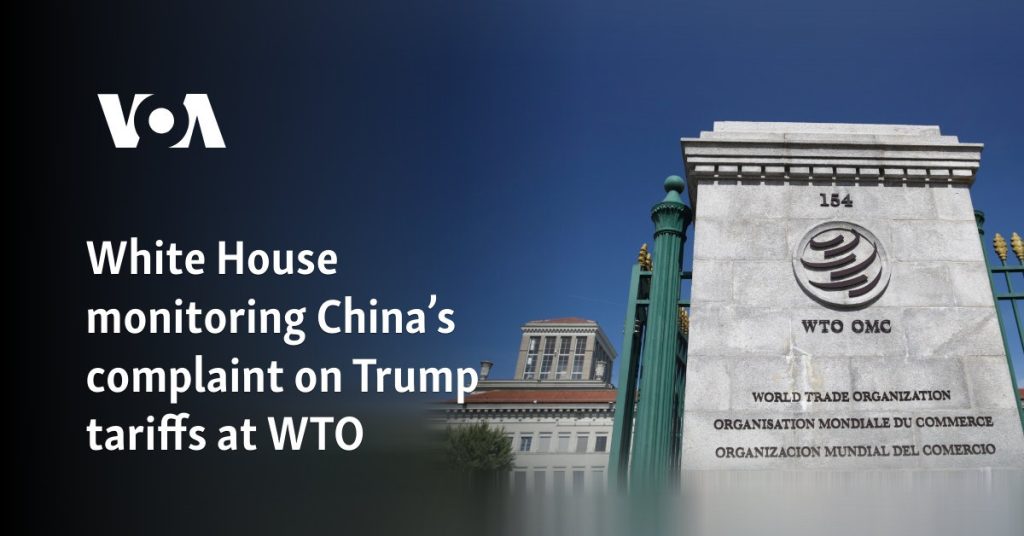
The White House on Thursday said it was monitoring a complaint by China to the World Trade Organization that accuses the United States of making “unfounded and false allegations” about China’s role in the fentanyl trade to justify tariffs on Chinese products.
The complaint was made Wednesday, a day after President Donald Trump raised tariffs on Chinese goods by 10%. The White House said the new duties on Chinese goods were aimed at halting the flow of fentanyl opioids and their precursor chemicals.
China said it was imposing retaliatory tariffs on some American goods beginning February 10, including 15% duties on coal and natural gas imports and 10% on petroleum, agricultural equipment, high-emission vehicles and pickup trucks. The country also immediately implemented restrictions on the export of certain critical minerals and launched an antitrust investigation into American tech giant Google.
In the WTO filing, China said the U.S. tariff measures were “discriminatory and protectionist” and violated international trade rules. Beijing has requested a consultation with Washington.
China’s request will kick-start a process within the WTO’s Appellate Body, which has the final say on dispute settlements. A White House official told VOA the administration was monitoring Beijing’s file but did not provide further details.
Analysts say Beijing’s move is largely performative and unlikely to yield much relief. The Appellate Body has been largely paralyzed following the first Trump administration’s 2019 move to block appointments of appellate judges over what it viewed as judicial overreach. The Biden administration continued the policy.
China recognizes the WTO is not going to put a lot of pressure on the United States because Washington is fully capable of blocking any legal process there, said Jeffrey Schott, senior fellow at the Peterson Institute for International Economics.
“So instead, I think the Chinese reaction has been moderate in indicating that they will act tit for tat against U.S. trade,” he told VOA.
Schott added that there’s “a desire to keep things cool” and moderate the damage, just as what happened during the first Trump administration when a trade deal was agreed upon after initial retaliatory trade actions.
On the U.S. side, the 10% tariffs against China are much lower than the up to 60% that Trump promised during his presidential campaign, he said.
Trump-Xi call
Trump imposed import duties on Beijing after delaying his actions to impose 25% tariffs on Mexico and Canada following conversations Monday with their leaders. Tariff critics are hoping that a conversation between Trump and Chinese President Xi Jinping could lead to similar results.
White House press secretary Karoline Leavitt said Tuesday that the call “is being scheduled and will happen very soon.”
However, Trump has dismissed the negative impact of China’s tariffs and said he was “in no rush” to speak with Xi.
“We’ll speak to him at the appropriate time,” Trump told reporters at the White House on Tuesday.
Unlike Trump’s deal with Mexico and Canada, an agreement with Beijing is unlikely to come quickly, considering strong bipartisan support for placing tariffs on China because of concern about the influx of illegal drugs and other national security concerns, said Rachel Ziemba, an adjunct senior fellow at the Center for a New American Security.
“Even if they come up with some kind of agreement to settle this particular tariff or to remove the countertariffs, there will probably be more tariffs on China later in this administration,” she told VOA.
The U.S. Postal Service on Tuesday announced that it was suspending acceptance of inbound packages from China and Hong Kong, closing a loophole that Chinese garment and other consumer goods companies have used in the past. These companies, including Shein and Temu as well as Amazon vendors, bypassed existing U.S. tariffs by shipping to American customers directly from China.
On Wednesday, USPS reversed its decision, saying it would work with Customs and Border Protection on a way to collect the new tariffs.
The Postal Service “will continue accepting all international inbound mail and packages from China and Hong Kong Posts,” it said. “The USPS and Customs and Border Protection are working closely together to implement an efficient collection mechanism for the new China tariffs to ensure the least disruption to package delivery.”
It is unclear how the fee will be collected in such direct transactions between Chinese sellers and American buyers.
Trump’s trade actions on China, Canada and Mexico, as well as his threat to impose duties on all foreign shipments into the country, including from European allies, have caused confusion and uncertainty across global trade.
Businesses usually respond to trade uncertainty by holding off on investments or passing on increased costs to customers. But the damage goes beyond small and large businesses domestically and abroad, Ziemba said.
“If one of the U.S. goals is relying less on China and Chinese supply chains for critical minerals, for energy, for other things like that, then the uncertainty about whether there’s going to be tariffs and investment restrictions on its allies fly in the face of that goal,” she said.







